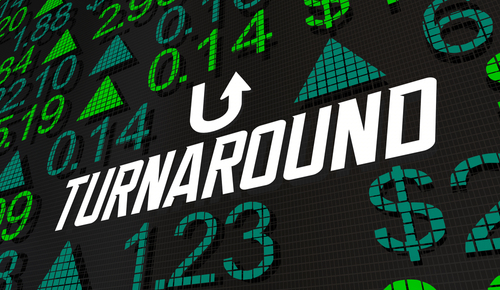Living Life Unplugged: Why You Should Leave Your Portfolio Alone
We’re fighting a losing battle against devices of our own making.
Simply put, we’re addicted to screens of all breeds – smartphones, smartwatches, desktop computers, tablets and TVs. And we’ve reached the point of diminishing returns.
These technologies were presumably made with good intentions. With TVs, we’re able to watch the news in our homes. With tablets, we can work on the go, without being tethered to clunky machines and wires. With smartphones, we have the power to buy and sell stocks in mere seconds.
But the magic of these inventions has worn off.
Now when our phones ring, we get instant notifications on three different devices.
We stare at our screens like zombies, binging on a buffet of streamed shows and movies. We scroll mindlessly through social media instead of socializing. And we watch obsessively as the stock market indicators change from green to red and back again.
It’s anxiety-inducing… exhausting…
And it’s hurting our investment returns.
I needed a break. Which is why I “unplugged” for three months.
Now, it wasn’t a true detox. I didn’t fall off the face of the Earth. But I deleted social networking apps from my phone. I turned off email notifications. And I moved my laptop off the table I eat my meals at.
I didn’t even check the markets. In fact, my portfolio went untouched for three months… and I still made money.
A Slippery Slope
Thanks to the pandemic (you might’ve heard of it), we’re even more glued to our devices than usual.
So if you have an iPhone and haven’t checked that handy Screen Time report in a while, you might want to sit down first.
For many of us, our screen time has been up triple digits. (Those are the kinds of gains we prefer to see in other places.)
In 2019, data tracking company Zenith reported that American adults spent about 3.5 hours a day online. Time management firm RescueTime found that people open their phones an average of 58 times a day. And that was before we were forced into quarantine…

Now people are reporting average screen time of seven or eight hours a day. That’s a full-time job!
But technology is a slippery slope.
You open your phone to check the time… and you see a notification. Then you open an app… click on an ad… read an article… buy something on Amazon… check your bank account… and, while you’re at it, see what the markets are up to.
I’ve been guilty of this tangential behavior many times before.
But it can be self-destructive for your mental, your physical and, importantly, your financial health.
Set It and Forget It
As devices and technologies have gotten more sophisticated, the average investor has traded more stocks per day.
In 2005, that number was 11, and in 2015, it was 17.4, according to TD Ameritrade. Today, that trend has likely continued.
But there is such a thing as “overmanaging” your portfolio. And unless you’re an active day trader, you really shouldn’t keep one eye glued to CNBC all day long.
This can lead to rash, emotional decision making and panic-selling. And overtrading has been proven to cause underperformance.
Again, we’ve hit the point of literal diminishing returns.
So I was curious what would happen to my personal account when I didn’t trade for three months.
I was pleasantly surprised…

September was a real nail-biter. (Not that I would’ve known. I was unplugged.)
Now here we are in mid-October. Not only has my portfolio been made whole once more, but it’s up more than 7%, mirroring the broader market performance.
Granted, three months is a relatively short period of time. So let’s look at 2020 thus far.
If I had exited my positions in March when the decade-old bull breathed its last breath, I would have sold at a loss.
Seven months later, my account (and the markets) is up 30%.
So here’s why I didn’t panic back in March or September… and why I don’t plan to in the future.
I learned a very important lesson from Chief Trends Strategist Matthew Carr when I first started investing – and it’s a lesson he learned when he first started out in the industry…
“There will be down days, down weeks, down months and even down years… But the market ultimately moves in only one direction: up.”
So if you have long-term positions, the best thing you can do when faced with volatility is, well, nothing. That’s the beauty of a “set it and forget it” portfolio.
If you feel so inclined, you can use the opportunity to pick up value stocks at low prices. But as far as account maintenance, you don’t have to do a darn thing.
The Importance of Unplugging
With this knowledge of the markets’ long-term health and my safeguards in place (read: trailing stops), I felt confident that I could “check out” for three months.
I temporarily stopped tuning in to Yahoo Finance and CNBC every morning. Not long enough to be out of touch. But long enough to feel refreshed.
Because wealth building isn’t supposed to consume you. It’s supposed to liberate you.
So the next time you catch yourself down the stock market rabbit hole, put down your phone. Log off the computer. Step outside and breathe the fresh air.
Those pesky green and red arrows can wait until tomorrow.





